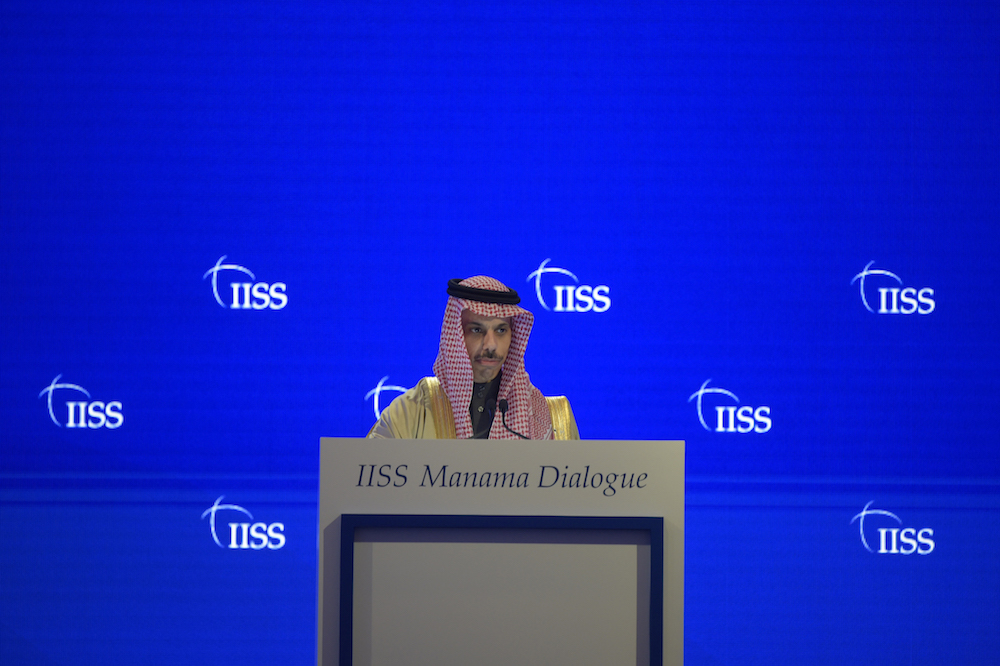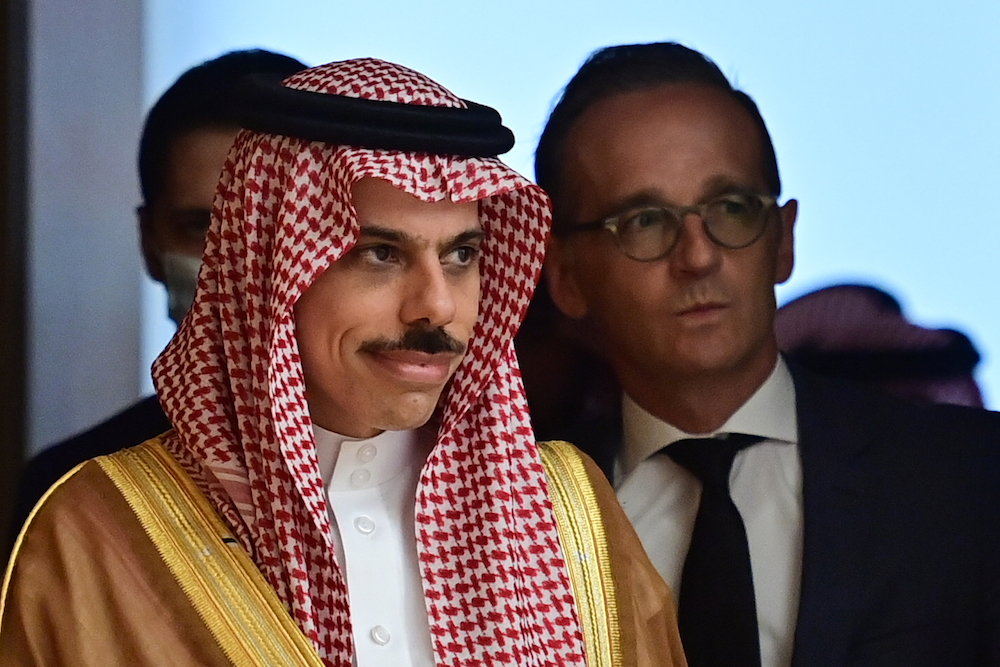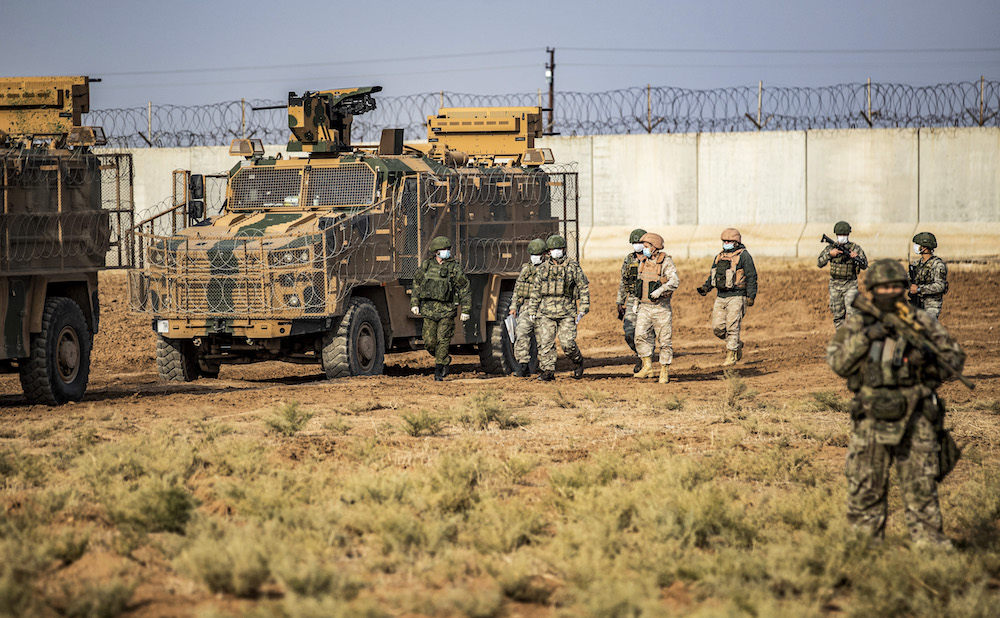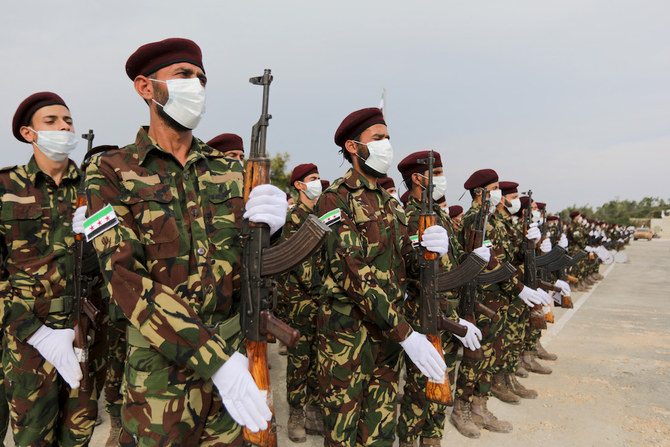LONDON: COVID-19’s impact on governance, multilateralism and the rules-based global order topped the agenda on day one of the 16th annual Manama Dialogue in Bahrain, organized by the UK-based International Institute for Strategic Studies (IISS).
Although the conference, running from Dec. 4-6, is exploring the broader themes of Middle East conflict and security, the strategic and geo-economic implications of the COVID-19 pandemic predictably dominated Saturday’s discussions.
“This year we bore witness to a cooperation deficit in international affairs,” said John Chipman, IISS director-general and chief executive, opening the conference, whose focus this year is on the themes of war, power and rules.
“We now swing perilously on the hinge between an old rules-based order that seems poorly maintained for contemporary purposes, and a new order that is yet to be well engineered and strategically designed.”
Headlining Saturday’s morning session, Saudi Foreign Minister Prince Faisal bin Farhan called 2020 an “unprecedented” year, with “challenges posed by a pandemic that is leaving a lasting mark both of state resilience and multilateral cooperation.”

Saudi Foreign Minister Prince Faisal bin Farhan addresses the Manama Dialogue security conference in the Bahraini capital, on December 5, 2020. (AFP)
It has also been a year of positive lessons, however, as “through collective action we have shown how the international community can come together during times of crisis,” he said.
Prince Faisal outlined Riyadh’s “whole-of-government approach” to tackling the pandemic, including an allocation of SR 47 billion ($12.53 billion) for bolstering the Saudi health system; heavy investment in mass testing and contact tracing; and economic interventions to reduce interest rates, protect private-sector financing and banking liquidity, and ease tax burdens.
He also highlighted the role Saudi Arabia has played through its presidency of the G20 international forum, which has committed $11 trillion in economic stimulus, pledged over $21 billion to the fight against the pandemic, and offered debt relief to developing countries totaling $14 billion.
“Given the multiple prospects of an effective vaccine, the Kingdom seeks to work with international partners towards ensuring a fair and speedy distribution of the vaccine globally, and especially to countries most in need,” he said.
Seconding Prince Faisal’s view, Kang Kyung-wha, South Korea’s foreign minister, identified the pressing need for closer cooperation as the coronavirus pandemic’s key lesson.
“Global governance was already at a low point when COVID-19 struck, with trust in multilateralism and the rules-based international order already greatly eroded,” she said.
“COVID-19 is indeed a humble reminder of our interconnectedness and our shared vulnerability, and thus the critical importance of global solidarity and international cooperation.”

German Foreign Minister Heiko Maas (R) and Saudi Foreign Minister Prince Faisal bin Farhan arrive for a joint press conference in Berlin, on August 19, 2020. (AFP/File Photo)
Kang urged countries to support each other in strengthening emergency health capabilities and guaranteeing equitable access to supplies, treatments and vaccines. More specifically, she cited the need for strengthening the global health architecture centered around the World Health Organization (WHO), upgrading health regulations, and motivating the UN to streamline efforts against future pandemics.
This must go hand in hand with economic cooperation ranging from expansionary budgets and stimulus packages to normalization of cross-border movement of peoples, Kang said.
Echoing the sentiments of his fellow panelists, Miguel Berger, Germany’s state secretary for the federal foreign office, described COVID-19 as the “biggest test of our generation” and “the most serious challenge” for the multilateral system.
“The erosion of global governance started even before the COVID-19 crisis,” he said. “The reason is not that multilateralism is failing but that some of us are failing to support multilateralism.”
Berger said he is especially proud of Germany’s role in the quest to find a vaccine, hailing the achievements of BioNTech, which worked alongside the American pharmaceutical giant Pfizer to create the world’s first licensed shot.
“The hope is that we are going to have very effective vaccines soon available as a very important first step,” said Berger. “Now we must arrange a fair and even distribution. … This will be a crucial test in our view for multilateralism.”
Berger commended Saudi Arabia “for leading the G20 countries through this very difficult crisis with strong commitment and leadership.”
FASTFACT
IISS
* Provides objective information on military, geopolitical and geo-economic developments that could lead to conflict.
“The Riyadh summit has taken very important decisions in order to counter the effects of this crisis,” he said, referring to the virtual leaders’ conference held last month.
One of the most interesting questions that emerged during the discussion was the widespread hesitance surrounding the vaccine candidates, including in the Middle East, which potentially makes the case for compulsory immunization.
“I think it is always better to give the choice to the people but you then need to provide the facts and the evidence that enables that choice,” said Kang, highlighting the role of trust in crisis management.
Referring to the phenomenon of facts, rumors and fears mixing and dispersing, she said: “Infodemics are much more dangerous than pandemics. Because in infodemics, when you lose the importance of facts and evidence, you don’t have any anchor to decide which direction to go.”
“Fake news, misinformation, disinformation … are something that responsible leaders really need to get our minds wrapped around.”

Russian and Turkish soldiers walk together while clad in surgical masks due to the COVID-19 coronavirus pandemic during a joint Russian-Turkish military patrol in the countryside near Darbasiyah along the border with Turkey in Syria's northeastern Hasakah province on November 30, 2020. (AFP/File Photo)
Kang added that with people so wrapped up in their own “misinformed universes,” it becomes very difficult to build consensus.
The Manama Dialogue is taking place against a backdrop not only of the pandemic but also tectonic shifts in the power and diplomatic balance of the Middle East and the prospect of significant changes when the new administration of Democrat Joe Biden assumes office.
Central to these shifts are the Abraham Accords, which saw the UAE, Bahrain and Sudan normalize relations with Israel in September — only the third, fourth and fifth Arab countries to do so since Egypt and Jordan decades earlier. This in turn has given new impetus to resolving the Israel-Palestine conflict.
“Regarding Palestine and Israel and also whether we will at some point join the Abraham Accords,” Prince Faisal said in his remarks, “for Saudi (Arabia), it is critical to get the Israelis and the Palestinians back to the negotiating table. That is the only way to bring about lasting regional peace.”
Delegates are curious as to how Joe Biden, one of the architects of the Obama-era Joint Comprehensive Plan of Action (JCPOA), would handle future relations with Iran.

Turkish-backed Syrian rebel fighters, mask-clad due to the COVID-19 coronavirus pandemic, take part in a military parade marking the graduation of a new batch of cadets and attended by officials from the Turkey-backed opposition in the town of Jindayris, in the Afrin region of the northern Syrian rebel-held province of Aleppo, on November 14, 2020. (AFP/File Photo)
The Trump administration has pursued a campaign of “maximum pressure” to force Iran to abandon its nuclear and ballistic missile programs and to stop its geopolitical muscle-flexing. Many worry Biden intends to turn back the clock.
“We learned the lessons from the prior administration’s appeasement. Sending pallets of cash didn’t change Iran’s behavior; rather, it funded and supercharged their terror campaigns,” Mike Pompeo, the US secretary of state, told delegates via video link on Friday evening.
“We know our campaign is working because now the Iranians are desperately signaling their willingness to return to the negotiating table to get sanctions relief.”
Germany is one of the core signatories of the JCPOA and among several European powers that have fought to preserve the deal since the US withdrew in May 2018. In his remarks, Berger said Germany and other signatories “will be waiting to see the direction of the new US administration.”
However, as a result of Iran’s non-compliance in important areas of the JCPOA and its recent advances in nuclear research and development, signatories recognize the deal will need to be updated, he added.
---------------------
Twitter: @RobertPEdwards






































